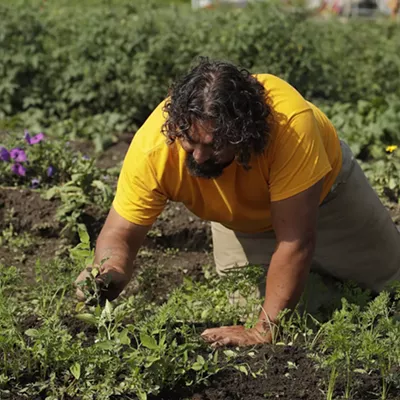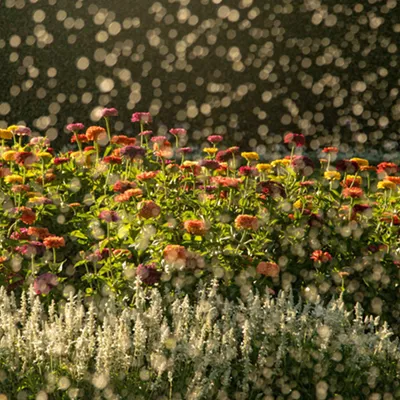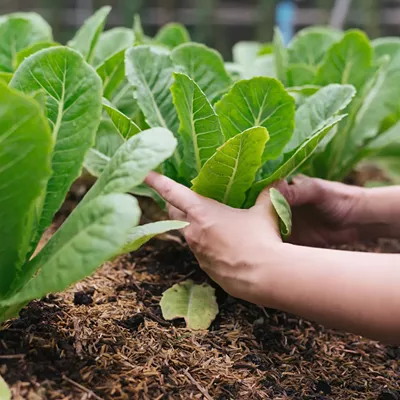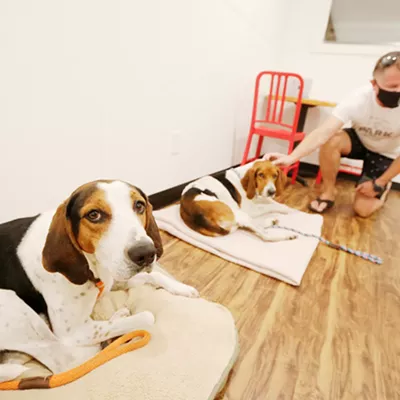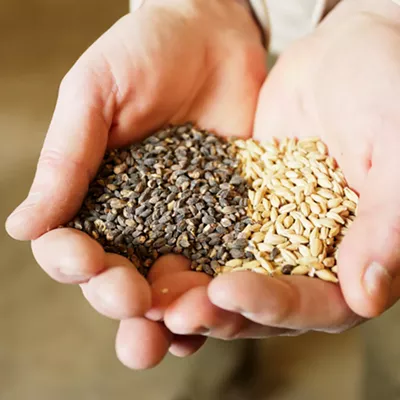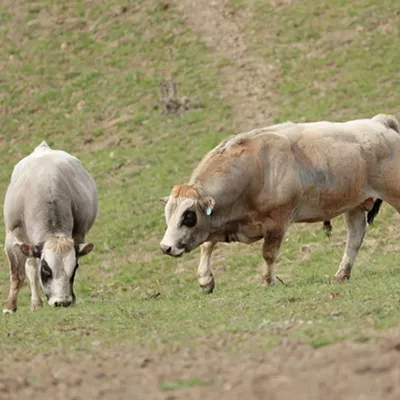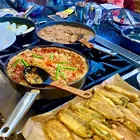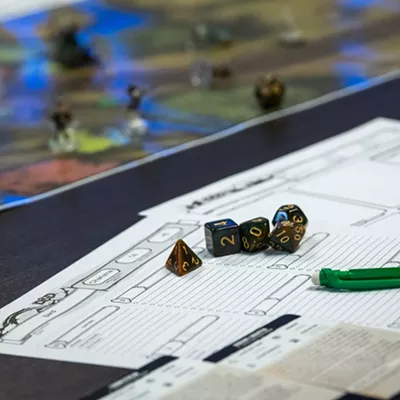A decade or so ago, if you lived in Spokane city limits and had a particularly shady yard, no room to garden or a less-than-green thumb, there weren't many alternatives for growing your own food.
Since then, however, opportunities for urban gardeners have rapidly blossomed, with new community gardening spaces popping up each year in neighborhoods across the region.
Community gardens are just that; public spaces where neighbors can come together to grow whatever produce they like after paying a small fee to rent a garden bed for the season, water included. These gardens are usually located on empty lots — several in Spokane are on city-owned water department property — or at churches and schools.
"I'm the one who started community gardens [here] back in 2006, and have been a part of it since then, but it's only been in the last couple of years that there's been a strong push" to establish more community gardens, says local gardening expert Pat Munts.
Munts has been gardening for more than four decades and currently serves as small farms and urban agriculture coordinator for Washington State University's Spokane County Extension.
"There's now over 60 in Spokane County, and we started with four," she adds.
While this year's outdoor planting window is more than a month away, now is the time for newcomers to get involved with their local garden since openings fill up fast.
In the South Perry neighborhood, the Grant Park Community Garden has offered a place for residents of the area, designated a food desert, to grow their own veggies since 2011. The garden located off Ninth Avenue behind Grant Park Elementary is one of the largest in the city with 44 growing boxes for rent.
Garden manager Peggy Parker is readying for her seventh season overseeing the garden, after initially getting involved because her backyard isn't sunny enough to grow herbs and veggies.
"As garden manager I help all the new gardeners with anything they might need, all the way down to helping them plot their bed to make sure they get the maximum amount of produce," Parker says.
While the Grant Park garden has been vandalized a few times in recent years, Parker says its benefits far outweigh the struggles. To support hungry neighbors and deter theft, volunteers annually plant tomatoes, salad greens, herbs and more along the outside of the garden's fence with signage telling anyone to take what they need.
Parker also shares stories of curious children who come by to help her weed and pick veggies to bring home. At Grant Park and other gardens, many locals are getting their hands dirty for the first time to grow fresh, organic produce with the support of more experienced gardeners working alongside them.
"That is why we do community gardening," Parker says. "We want to inspire the next generation and we want to make sure that people have fresh food. We want to demonstrate sustainability and the sense of community that we're all in this together."
Parker also serves as board vice president of the Inland Northwest Community Gardens, a region-wide resource that helps struggling or new community gardens and gardeners. The nonprofit's website (incgincommunitygardens.org) offers a directory of active community gardens across Eastern Washington, North Idaho, far Western Montana and Northeastern Oregon. Outside of the Spokane core, community gardens have sprung up in Deer Park, Cheney, Liberty Lake, Colville, Davenport, Coeur d'Alene and beyond.
Dennis Anderson, co-founder and manager of the Commons Community Garden behind Sacajawea Middle School on the South Hill, got involved for the same reason Parker did — his yard was just not sunny enough to garden.
"My wife and I were selfishly interested in growing tomatoes and basil because we could not do it in our own yard, and that got us talking to people with a similar interest," Anderson recalls.
The Commons currently has three openings for the 2020 growing season, he says, noting that contact info for the Commons and other area gardens is posted on INW Community Gardens' website, and on the similar Spokane Community Gardens site (spokanegardens.org). At the Commons, beds are $25 or $30 to rent for the year and priority goes to gardeners residing nearby, though no one is excluded from joining based on where they live.
Community gardens can have many positive effects on a neighborhood beyond nutritional output and fostered connections. The extra outdoor activity can help deter crime, boost property values and even help feed the hungry when there's leftover produce, notes master gardener Munts.
Growing your own produce supports a healthy lifestyle and is often more affordable than buying from the grocery store. Gardening provides a sense of accomplishment, too, but the best reason to join others at a community garden in Munts' view is the built-in support.
"There are people there who have experience who can help advise when to plant or judge when something is looking terrible, or is really just fine," Munts says. "It helps people not feel like they are failures at the first sign of issues, which is why people give up on gardening." ♦
GET READY TO GARDEN!
Cabin Fever Gardening Symposium [CANCELED]
This annual, daylong event offers classes covering garden design, pruning and basic horticulture sessions on flowers, vegetables, berries, fruit and more. Registration includes your choice of one class from four sessions. Sat, March 21 at 8:30 am. $60-$65. WSU Spokane County Extension, 222 N. Havana St. Register at mgfsc.org/cabin-fever-1
Between a Rock and a Small Space [CANCELED]
A workshop offering advice on gardening in small plots, raised beds, containers and using vertical gardening methods, hosted by Inland Northwest Community Gardens. Also includes a seed swap, silent auction, discounts for gardening supplies and more. Fri, March 13 from 6-8:30 pm. Free. Emmaus Church, 1317 E. 12th Ave. incgincommunitygardens.org
More Resources
- WSU Spokane County Extension: extension.wsu.edu/spokane
- Spokane Community Gardens: spokanegardens.org
- Inland Northwest Community Gardens: incgincommunitygardens.org ♦




